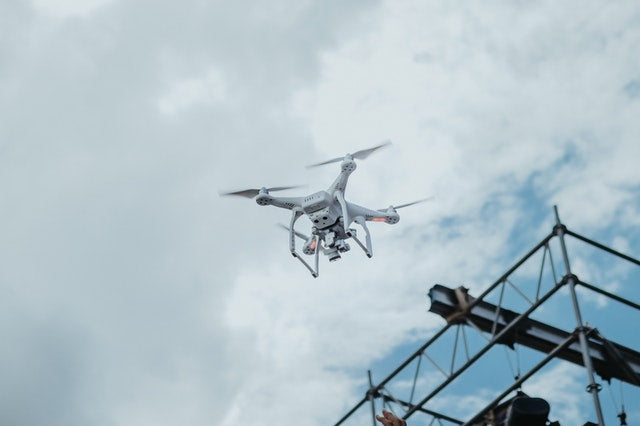Imagine a manufacturing plant where the factory floor extends well above the concrete, where raw materials and parts move in a continuous stream from storeroom to workers by flying drone along predetermined pathways. The drones are fully autonomous and use laser scanners to avoid moving obstacles like workers and machinery on the plant floor below them. As the drones deliver parts in a steady stream, employees focus on their workstation tasks without interruption. The plant hums with activity, and your production line runs smoother than ever.
If sounds like something out of BladeRunner, think again: this has already occurred in one German Audi factory, where drones were used to deliver parts as large as steering wheels to workers. While this was only a short term project limited by German manufacturing regulations, Audi was encouraged enough by the experiment they would consider reviving their use of drones if local laws change.
New Drone Utilization
Audi is just one of many companies considering how to best utilize drones in a manufacturing setting over the coming decades. For example, Bogh Engineering uses 3DR’s Site Scan--which is essentially a SaaS technology built into a drone--to quickly and frequently run surveys on building sites. The drone’s multi-axis HD video captures and automatically enters data to a remotely connected Autodesk platform. This drone technology has allowed the company to decrease costs, increase accuracy, and improve its communication with stakeholders and subcontractors.
Delair and Bentley are two other companies offering photogrammetry (the science of making measurements from photographs) via drones. While this idea of drones as service vehicles may be new, when one considers the ramifications to Industry 4.0, this type of service makes sense. Drones are, in essence, flexible data collectors, and their adoption as part of IIoT data collection-- the lifeblood for opportunities like supply chain forecasting and tracking, preventive maintenance, improved production, and quality standards, as well as advanced analytics--is a logical next step.
Manufacturing Needs Sensor Data
With the growing needs for data for Industry 4.0, the use of drones within industrial settings is almost inevitable. The U.S. Federal Aviation Administration (FAA) estimates the sale of commercial drones will increase from 600,000 in 2016 to 2.7 million by 2020. Different types of sensors can be fitted to specialty drones, including those for the detection of heat, of gases, and of near-infrared or ultraviolet light. Some drones, like Swiss maker’s Flyability, are designed for use in dangerous or inaccessible locations, such as the interior of a recovery boiler at a paper mill, or inside a gas turbine stack of a major energy facility.
The Flyability drone is specifically designed for interior use even in locations with thick concrete or steel walls that completely shield the drone’s operation signals to an outside operator. The drone can do its work without work to this external source, and inspections performed in dangerous locations are done with little or no downtime to the production facility, typically resulting in increased production and overall reduced operating costs.
Drones are also being adopted to maintain more accurate cycle counts, to access and scan equipment to determine maintenance needs, to conduct safety inspections, and to quickly and accurately locate assets on the manufacturing floor.
What the FAA Says About Industrial Drones
When will we see drones become a regular part of the manufacturing landscape? Even though federal regulations have relaxed in recent years, there are still some hurdles to overcome. But drone adoption has grown enough for the FAA to create a special manufacturer’s toolkit on its website. And while the size and robustness of drones and their associated batteries continue to limit their use in industrial settings, for now, each new expansion in the field brings machines with longer fly-times that can handle larger payloads. Once those hurdles are overcome, we should see a significant increase in the adoption of this technology into the manufacturing sector.
Visit our site to search for quality industrial automation parts from Reliance Electric, GE, Fuji, Horner, and others.

